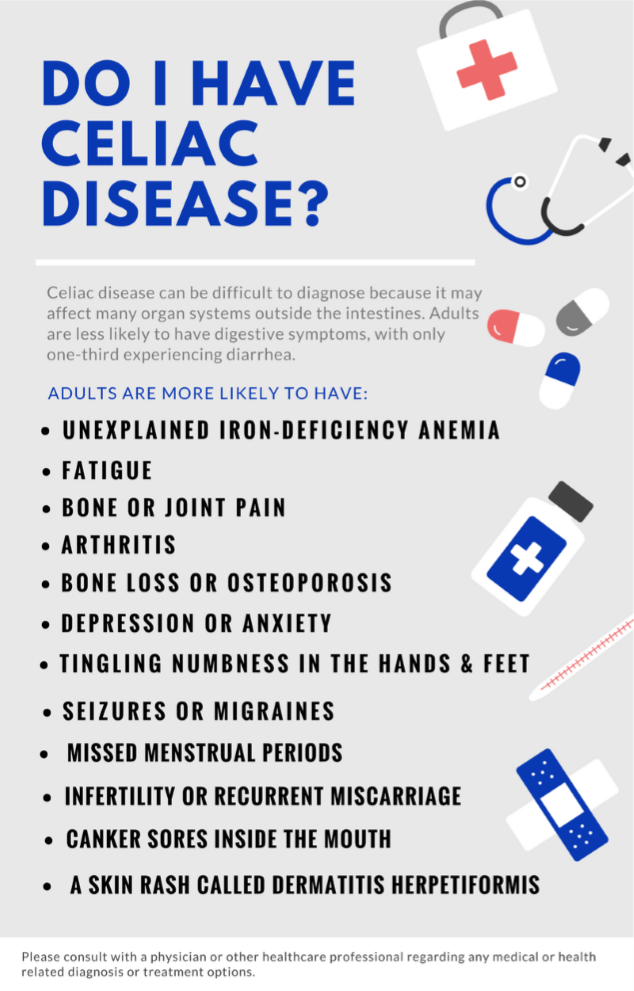
Do I Have Celiac Disease?
Celiac disease is estimated to affect 1 in 100 people in the United States and its incidence appears to be rising. In addition, 2.5 million Americans are undiagnosed and may be at risk for long-term health complications. Celiac disease can develop at any age, affecting both children and adults.
Left untreated, celiac disease can lead to additional serious health problems. These include nutritional deficiencies, anemia, increased risk of infections, osteoporosis, dermatitis herpetiformis (an itchy skin rash), infertility or miscarriage, neurological conditions including seizures and migraines, and intestinal cancers.
Celiac disease can be difficult to diagnose because it may affect many organ systems outside the intestines. Some people with celiac disease have no symptoms. However, all people with celiac disease are at risk for long-term complications, whether or not they display any symptoms.
“Our goal is to find ways to eliminate the devastating symptoms of this disease and stop damage to the small intestine,” explains Elisa Boden, MD, Virginia Mason clinical researcher. “We hope to discover both factors that trigger disease and also those that protect healthy people. We will use this information to develop ways to put the brakes on the immune system to stop it from reacting to gluten.”
BRI scientists and clinical researchers will study the molecular and genetic profiles of people with celiac disease compared to healthy people. They will use BRI's biorepositories to better understand the disease mechanisms at onset and investigate possible environmental factors that could contribute to celiac disease.

Immuno-what? Hear the latest from BRI
Keep up to date on our latest research, new clinical trials and exciting publications.


